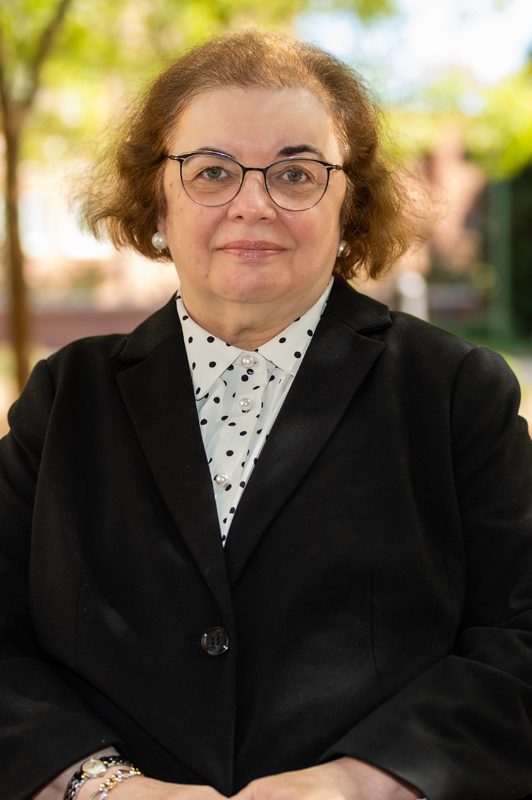Faculty member in computer science and software engineering presents at international forum
Published: May 15, 2025 10:40 AM
By Joe McAdory
Daniela Marghitu recently brought her vision to transform technology education into inclusive spaces for individuals with disabilities onto the world stage.
Marghitu, director of Auburn University’s Laboratory for Education and Assistive Technology in the Department of Computer Science and Software Engineering, was a panelist at “Reforming the Culture of Inclusion in Science for Sustainable Development Goals,” an international virtual forum co-hosted by the Royal Academy of Science International Trust (RASIT) and the United Nations Department of Economic and Social Affairs on May 8.
Marghitu, who serves on the State of Alabama’s Governor’s Advisory Council for Computer Science Education, led the virtual presentation: “What innovative strategies can governments, multi-stakeholder organizations, and academic institutions implement to empower the effective recruitment, retention and success of individuals with disabilities across all scientific disciplines?”
“There are several strategies that every university should be implementing, but we also need to recognize there’s a lot of room to grow,” she said. “We need to ensure accessibility across the entire STEM pathway, from elementary schools through postgraduate education. Recruitment, retention and support strategies must also be tailored to the needs of students with disabilities.
“Faculty, staff and employers should receive training on how to effectively interact with students with disabilities. We need to improve the accommodation systems on campuses and work more closely with accessibility services.”
Among those strategies: accessible STEM education across the entire academic pathway tailored support for students with disabilities, professional development for faculty and staff, improved accommodation systems and stronger integration of Universal Design for Learning.
“We need to build systems that support students with disabilities from the moment they enter school all the way through to their careers,” she said. “This includes training programs, mentoring and resources that empower students to advocate for themselves — skills that ultimately prepare them to become leaders.”
Marghitu also emphasized that while computing fields have made substantial progress in lab accessibility, other STEM areas must follow.
“We’ve made computing labs more inclusive, and that’s a strong start,” she said. “Now we need the same momentum for labs in chemistry, physics, engineering and beyond.”
Marghitu said that people with disabilities make up only about 8.6 to 10 percent of scientists and engineers across all sectors — academia, government and industry. How can this change?
“We need targeted mentorship and career development, equal pay and strong incentives for employers to hire, train and retain people with disabilities in STEM,” she said. “Most importantly, we must support professionals with disabilities in reaching leadership positions so they can serve as role models and help shape the practices we need.”
Marghitu called for specific actions: improved data collection disaggregated by disability, equal pay for professionals with disabilities, targeted mentorship programs and policies that support their advancement into leadership roles.
“Representation matters,” she said. “When people with disabilities are in leadership positions, they not only influence decisions, but they also change the culture.”
RASIT served as a platform for global consensus-building on inclusive science. It reinforced that accessibility and equity are necessary for achieving the UN’s 2030 Sustainable Development Agenda.
“It was an incredible honor to be part of a conversation that I hope leads to real, lasting change in the way science is taught, practiced and shared around the world,” Marghitu said.
Media Contact: , jem0040@auburn.edu, 334.844.3447
Daniela Marghitu led the virtual presentation: “What innovative strategies can governments, multi-stakeholder organizations, and academic institutions implement to empower the effective recruitment, retention and success of individuals with disabilities across all scientific disciplines?”


